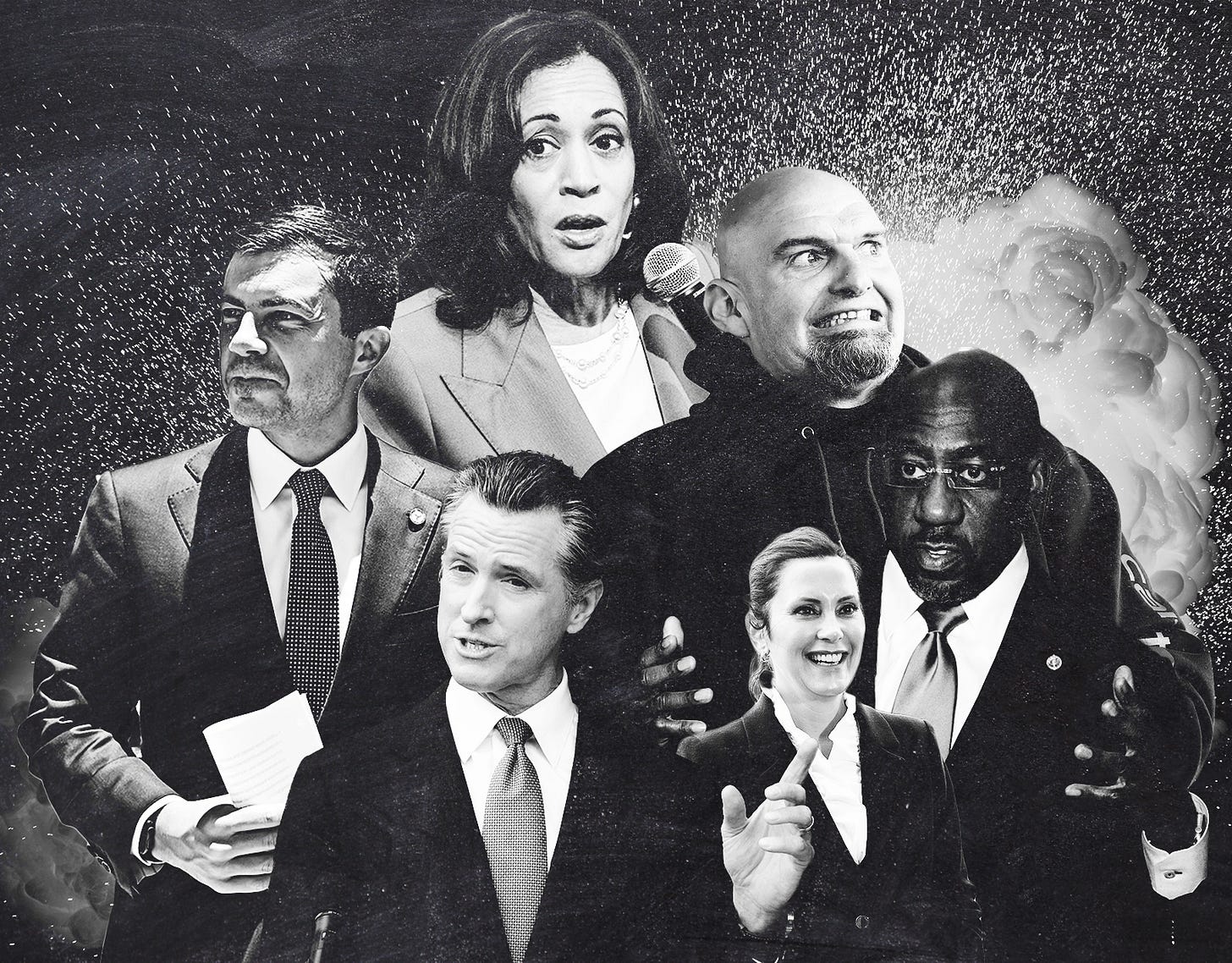Who Will Both Defend and Reform Our Democracy?
I am, I suppose, a member in good standing of the seemingly large and certainly vocal community of well-wishers to the Democratic party who spend a lot of time lamenting its shortcomings.
But it’s worth stepping back for a minute from the day-to-day tactical screw-ups of the Democrats and from the week-to-week sub-optimal performances of some of their leaders. It’s worth acknowledging that the Democrats face a challenge over the next two and half years that would be difficult for even the best organized party with the most capable leaders.
The challenge might be summarized this way:
The Democrats need to be a party that urgently defends democracy, moderation, and the rule of law. In other words, they need to be something of an institutionalist party.
But the Democrats also need to be a party that urgently advances major reforms in our institutions—many of which, as everyone can see, are either broken or damaged. Put this way, all of the tensions are obvious: Democrats need to defend congressional government while pledging to reform Congress. They need to defend law and order, while seeking to reform many of the organizations charged with maintaining law and order (such as the Secret Service and police departments such as the one in Uvalde). They need to defend the rule of law while being appropriately critical of the current Supreme Court. They need to defend the overall importance of markets, while correcting many aspects of the economic status quo.
To put it simply: Democrats need to be the party that defends America, while working to improve America.
This is, needless to say, not a brand new insight. The Biden administration understood this, which is why it gave its major legislative package the name Build Back Better. The name has been much ridiculed as a marketing failure. But one can see what it was that the Biden administration sought to convey: We aim to build back, after the pandemic, and after Trump. But we also aim to build better.
Not unreasonable.
Nor, of course, is the challenge of at once conserving and renewing a novel one. Most serious political parties, and most serious political leaders, at times of challenge and crisis, have had simultaneously to both defend what was important to be preserved, and to reform what needed to be changed. In the Gettysburg Address, Lincoln describes the task facing the Union as ensuring that the nation conceived four score and seven years ago would endure—and also bringing about in this same nation a new birth of freedom.
We don’t face a challenge of the magnitude of the one Lincoln faced. But we do face considerable challenges. In considering who should lead the Democratic party in the 2024 election, supporters and friends of the Democratic party need to ask themselves who is up to these challenges. Who can at once marshal the forces for a stubborn defense of our democracy and mobilize the means of its energetic reform?
For while one speaks of a challenge facing a political party, the answer tends to come down to that party’s leadership—and in particular, in the United States, to that party’s presidential nominee. That nominee is key. He or she has to win the election. He or she has to govern successfully. He or she has to once both conserve and reform.
Who is that person? We won’t know until many individuals step up to the line, state their qualifications, and make their cases. They have time to think about whether they want to do this, and how to do this.
But not that much time. The flag drops on November 9, 2022.



